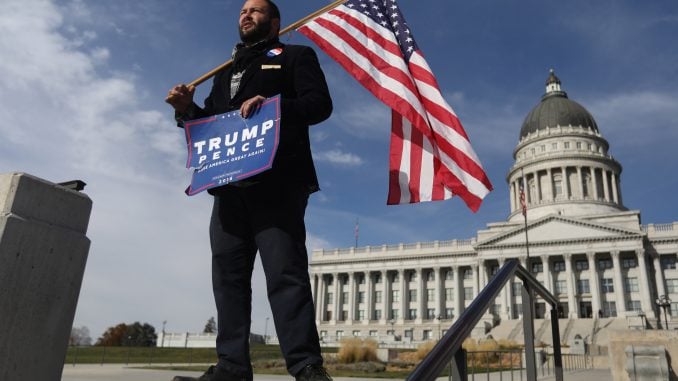
The freak-out by many on the left is only beginning after Donald Trump’s easy electoral win. Leading the charge this week was Van Jones, a CNN commentator, who deemed the results a “white-lash.” Jones accused Trump supporters of voting against a demographically “changing country” and a “black president, in part.” Jones did not mention that many of these same Trump supporters, particularly in the Rust Belt, had been Obama voters. Trump was able to flip Pennsylvania, Wisconsin, and Michigan, all states that hadn’t voted Republican on the national level since the 1980s. On NPR this week, novelist Attika Locke was even more hyperbolic. “I wouldn’t say that any way black folks underperformed. I would say white racists over-performed.” After polls closed Tuesday evening, media talking heads on all the major networks gushed that the Hispanic vote would sink Donald Trump’s campaign before any results were tallied. Republicans too were guilty of long parroting this claim. Veteran GOP consultants predicted all year that Trump would get trounced for not reaching out to Hispanics. When Trump’s victory started to become apparent to Clinton supporters in New York City on Tuesday, many blamed white males. “Honestly, I think this is a direct reaction to having Obama as our president, and I think that non-college white males said, ‘No way,'” one woman told the Washington Examiner at what was supposed to be Clinton’s victory party. Again, Obama won lower-income white voters in Pennsylvania in 2008. Obama out-performed Clinton among white voters in two elections, especially in the Midwest, and won the majority of younger white voters in 2008. Furthermore, according to exit polls, Trump did better with Hispanic and black voters than Mitt Romney in 2012. In fact, Trump appears to have grown every demographic group for the GOP compared to Romney except for one group: white voters. The lesson to the Clinton campaign, Republicans, and perhaps most importantly Democrats, is that identity politics is not a sufficient formula to win elections. Even though we are constantly barraged with America’s racial divisions, and there is truth in that, especially culturally, there are still many similarities. Outside of the media and academic bubble, many voters are motivated more by concrete issues pertaining to what they believe will improve the economy and overall health of the Republic. To classify all Latino or Hispanic groups into one homogenous groupthink pot is not only wildly stereotypical, but also offensive as well. New Latino immigrants are of course culturally and economically different than Hispanic Texans who have been in the state since long before Northern Europeans descended as settlers. Some left-leaning commentaries too lashed out at women for acting as a traitor to their sex for supporting Trump. Clinton lost white women, and was trounced by those in lower socio-economic brackets. Clinton’s “stronger together” sisterhood pitch was especially unappealing to those most left behind by this economy. The dire predictions that the changing ethnic demographics would result in a Trump meltdown on Tuesday never materialized. Despite Trump’s many flaws, and fair questions about whether he will advance or even support conservatism, he was adamant that he could win. Remarkably, he continually said this about the GOP at rallies: “They don’t know how to win I will teach them.” Not only did he dramatically flip the electoral map, he triumphed over the exhausted and overplayed politics of identity.



